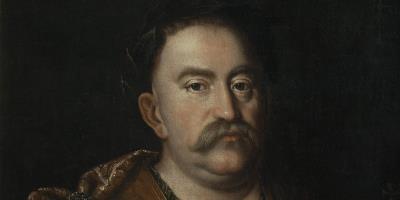
Calendars were a specific type of literature in the times of Jan III Sobieski. They usually were composed of the calendar itself and a yearly book of premonitions, and in the second half of the 17th century they were an integral part of any nobleman’s library, one of the tools for managing free time for them and their family, as well as for their grange and its community. Apart from the passage of time, they also registered the rhythm of political life.
In the second half of the 17th century, especially during the reign of Jan III Sobieski, the information about the King in calendars became abundant. In the past, the figure of the king had appeared in calendars and in the books of premonitions as an authority, as a personification of a function, deprived of any personal characteristics. The calendars mentioned kings in relation to the analysis of the position of the planets of the Zodiac, predicting possible political crises, usually connected to the death of the ruler. The kings appeared also in the analyses of the current and forthcoming state of political matters, as read from the stars and their positions.
Due to the fact that the calendars also indicated the chronology of the world events, the authors also indicated the year of a given king’s reign, it was, however, the only exception in favour of describing the current state of the State.
And thus writing down the victory of King Jan III Sobieski over the Turks, and describing him as a victor was an unprecedented event, especially given the fact that the timelines in the calendars were often laconic in nature, usually limited to a few biblical dates and the most important dates from the history of Poland. Up until the reign of Jan III, even the most sophisticated calendars did not include victories or political successes of Polish rulers, and described only the events significant for the structure of the country or ones that had an impact on the world. Among the typical information in the timelines were entries about creation of the tribunals important for the regime, such as the Crown Tribunal.
The reign of Jan III Sobieski also saw the appearance of elaborated political illustrations on the calendars’ frontispieces. They are in fact exceptional, and cannot be described as typical for the calendars of this period – as clear political allusions in the calendars’ illustrations was not a common practice. One of the examples of such calendars is Stanisław Niewieski’s Polish and Ruthenian Calendar with Premonitions for 1692 AD. It was printed using four separate woodcut blocks containing elements typical for the published content: personifications of the four seasons, medicine, geometry, astrology and astronomy. The new element appeared above the title, in the centre of the page. It was a propaganda element, composed of the Polish Coat of Arms under a closed crown, held by two winged figures. The illustration was completed with an inscription that read “VIVAT REX”, which the King’s adversaries surely interpreted as controversial, but in Zamość, where the calendar was published, it was not a great concern.
The calendars published during the reign of King Jan III started the tradition of describing current political events in their content. In the following years, the amount of political matters in the calendars increased in various ways, from publishing the horoscopes for the State, or birth horoscopes of the King, to the new phenomenon of the 18th century – a political calendar, which was a specialised publication, devoted only to the politics and providing information about the ruler and other authorities of the Polish-Lithuanian Commonwealth, the ruling dynasties in Europe, and even publishing historical works.
Translation: Lingua Lab
We would like to inform that for the purpose of optimisation of content available on our website and its customisation according to your needs, we use information stored by means of cookies on the Users' end devices. You can control cookies by means of your Internet browser settings. Further use of our website without change of the browser settings means that you accept the use of cookies. For more information on cookies used by us and to feel comfortable about this subject, please familiarise yourselves with our Privacy Policy.
✓ I understand